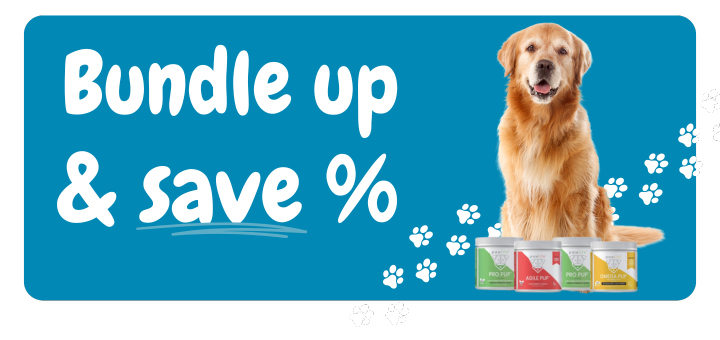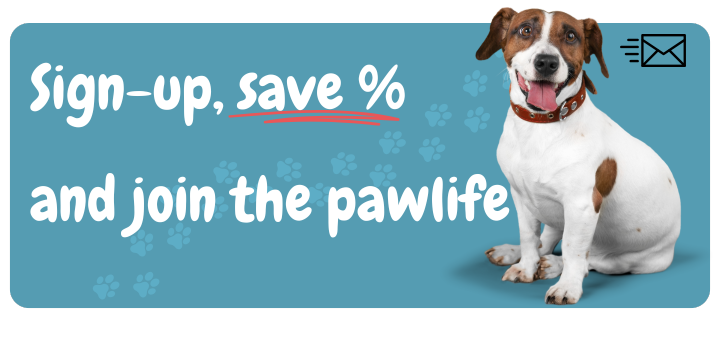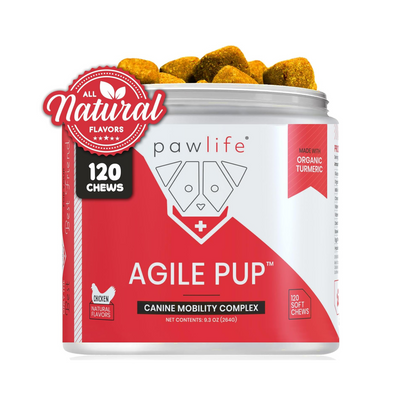Is Your Dog Stressed? Here’s How To Tell (And What You Can Do About It)
Understanding Canine Stress
Every pet parent wants their dog to feel secure, confident, and relaxed—but stress can sneak up on even the happiest pups. Dogs experience emotional pressure the same way humans do, but they rarely show it in obvious ways. Instead of crying or talking about it, dogs communicate stress through changes in body language, routine, appetite, and energy. These signals are easy to miss, especially when life gets busy or routines shift. By recognizing these signs early, you can reduce long-term physical and emotional strain on your dog.
Routine disruptors—like new visitors, loud environments, moving homes, schedule changes, or even weather shifts—can cause heightened anxiety. Many pups also react strongly to noise sensitivity, especially thunderstorms or fireworks. If your dog struggles with nervousness during storms, our blog on seasonal stress (Pawlife Seasonal Pet Wellness) offers additional environmental tips. No matter the cause, your dog depends on you to interpret the symptoms and provide calm, steady guidance.
Subtle Signs of Stress You Don’t Want to Ignore
Some dogs bark, whine, or visibly panic when stressed—but many express their discomfort through quiet or unusual behaviors. These subtle signs can easily be mistaken for quirkiness or stubbornness unless you understand what to look for.
1. Excessive Paw Licking or Chewing
When dogs feel overwhelmed, they often self-soothe by licking their paws. This repetitive action releases endorphins, giving temporary relief. However, chronic licking may also indicate gut imbalance, skin irritation, or inflammation. If your dog has a history of sensitive skin, pairing calming support with a skin-focused supplement such as Omega Pup can help reduce both stress-related and allergy-related irritation.
2. Yawning When They’re Not Tired
Stress yawns are different from sleepy yawns. These are abrupt, repetitive, and often paired with lip licking or avoidance behaviors. This subtle gesture is one of the earliest signs your pup is uncomfortable or overwhelmed. Dogs commonly display these when meeting strangers, visiting the vet, or hearing unexpected noises.
3. Sudden Shedding or Dandruff
Have you ever noticed your dog shed more during a stressful moment—like a grooming appointment or car ride? Stress activates cortisol release, which can trigger temporary shedding spikes. If this happens frequently, pair emotional support with nutritional support such as Pawlife Wild Alaskan Fish Oil, which improves coat health, skin moisture, and reduces stress-induced flaking.
4. Avoiding Eye Contact
Dogs often avert their gaze when they feel insecure, anxious, or uncertain of a situation. Some may even turn their head completely away from the stressor. This behavior is especially common in rescues and dogs adapting to new environments. If your pup is transitioning into a new household, our guide on digestive support (Pro Pup) can help with stress-induced stomach upset that often appears alongside avoidance behavior.
5. Changes in Appetite
Some stressed dogs suddenly refuse meals, while others eat too fast, seeking emotional comfort through food. Changes in appetite are typically tied to adrenaline spikes or gut disruption. Since the gut plays a major role in emotional balance, adding probiotics through Pro Pup can help stabilize mood by supporting healthy gut bacteria.
Why Stress Happens: Common Triggers in Everyday Life
Stress in dogs rarely comes out of nowhere. There is usually a trigger—big or small—that sets off an emotional response. Understanding these triggers helps you prevent future episodes and support your dog before anxiety builds.
1. Loud Noises and Environmental Changes
Thunderstorms, fireworks, construction, slamming doors, and household appliances can overwhelm noise-sensitive dogs. This is one of the most common stress triggers. A daily calming routine using Pawlife Calming Soft Chews can help maintain emotional balance during sudden noise events.
2. Separation Anxiety
Dogs are social animals. Many feel stressed when left alone for long periods, especially younger dogs and rescues. If your pup becomes destructive or vocal when you're gone, this may be a sign of separation anxiety. Supporting emotional health with consistent calming supplementation—and pairing it with structure and enrichment—can help reduce dependency behaviors.
3. Digestive Discomfort or Pain
Stress and digestive issues go hand-in-hand. When your dog’s gut flora is unbalanced, anxiety levels can increase. Likewise, chronic stress can disrupt digestion. Incorporating Pro Pup digestive soft chews can improve nutrient absorption and support calmer, more stable behavior.
4. Physical Pain or Inflammation
Joint stiffness, arthritis, or injury can make even routine activities stressful. Many pet parents discover behavior changes—like hiding, growling, or decreased activity—long before realizing pain is the cause. Adding daily joint support such as Agile Pup can reduce inflammation and discomfort, helping your pup feel more secure during movement.
How to Help Your Dog Find Calm and Comfort
Once you recognize stress in your dog, the next step is providing support. Combining emotional comfort with nutritional supplements creates a powerful foundation for long-term wellness.
1. Create Predictable Routines
Dogs thrive when they know what to expect. If your schedule varies, your dog may experience spikes in anxiety. Simple structure—regular feeding times, walks, and sleep routines—reduces emotional strain. When life gets unpredictable, calming supplements like Pawlife Calming Soft Chews help smooth the transitions.
2. Offer Mental Enrichment
Boredom is a major stressor. Incorporate puzzles, sniffing games, and training sessions to challenge your dog’s mind. Our wellness article on digestion (Tips for Better Digestion) also provides guidance for bonding routines that support mental and physical health.
3. Support Gut Health for Emotional Stability
The gut and brain are closely connected—a healthy gut can significantly reduce stress levels. If your pup shows nervous stomach symptoms (soft stool, gas, or nausea), daily probiotics through Pro Pup help nourish the microbiome and improve stress resilience.
4. Incorporate Natural Calming Supplements
Calming formulas work best when used consistently. Pawlife Calming Soft Chews use chamomile, L-theanine, and passion flower to support serotonin balance without sedation. They are ideal for:
- Rescue dogs adjusting to a new environment
- Noise-sensitive pups
- Dogs triggered by travel, grooming, or guests
- Senior dogs experiencing cognitive decline
5. Reduce Inflammation for More Relaxed Behavior
Inflammation anywhere in the body can elevate stress signals. If your dog has dry skin, itchy hot spots, or mobility issues, adding fatty acids through Pawlife Wild Alaskan Fish Oil can reduce inflammatory triggers and calm the nervous system.
What to Do During a Stress Episode
When your dog is actively anxious, your response matters. Here’s how to help them through it:
- Stay calm and confident—your dog mirrors your emotional state.
- Remove the trigger if possible—close blinds, reduce noise, or redirect to another room.
- Provide a safe retreat like a crate or quiet corner.
- Offer calming chews such as Calming Soft Chews for fast-acting support.
- Avoid excessive comforting—rewarding fear unintentionally reinforces the behavior.
For stress related to mobility or chronic pain, pairing support with Agile Pup and Wild Alaskan Fish Oil may reduce both physical and emotional strain.
When to Seek Professional Help
If your dog displays extreme distress—such as aggression, self-harm, destructive behavior, or complete withdrawal—it may require veterinary assessment. Chronic stress can signal underlying medical conditions, including thyroid imbalance, digestive disorders, or nerve pain.
Your veterinarian may also recommend pairing behavioral modification with supplements to create a comprehensive wellness plan. Our guide to long-term mobility care (Joint Health & Mobility Tips) can provide additional direction for older dogs or those recovering from injury.
The Bottom Line
Stress affects both your dog’s emotional wellbeing and physical health—but with early detection and the right support, your pup can regain balance, calm, and confidence. Monitoring behavior changes, providing structure, enriching their environment, and supporting their system with high-quality supplements all play a role in keeping your best friend happy.
For daily support, explore:
- Calming Soft Chews for emotional balance
- Pro Pup for gut-driven stress relief
- Omega Pup for skin & coat wellness
- Agile Pup for inflammation & mobility support
- Wild Alaskan Fish Oil for whole-body calm
Your dog communicates stress in quiet, subtle ways. By learning to read those signs and responding early, you become their greatest source of comfort—and their strongest partner in lifelong wellness.













